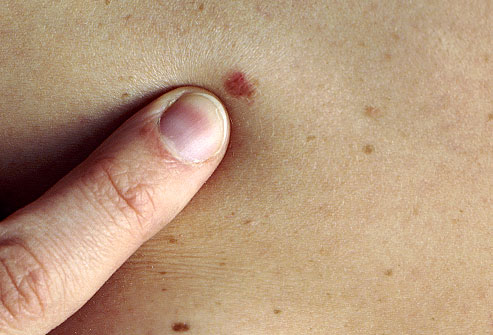The skin is the largest organ of the body. It covers the internal organs and protects them from injury. It also acts as
barrier by keeping bacteria out of the body and by preventing the loss of too much water and other bodily fluids. The skin regulates body temperature and helps rid the body of excess water s and salts. Certain cells in the skin communicate with the brain and allow for temperature, touch, and pain sensations.
The most common problems we have with are skin all revolve around the exposure of our skin to ultraviolet (UV) radiation from the sun over time. The days of having a tan was a good sign of good health are gone. In the last 10 years, we have learned that the harmful effects of UV radiation from the sun are much more dangerous than originally thought. There are many causes for the damage done to the skin that contribute to aging. The most common is from the free radical damaged from repeated exposure to UV sunlight. Other contributing factors are environmental toxins-smog and pesticides, cigarette smoke and medications.
It seems that the largest concern about too much sun exposure is the concern with Skin Cancer. In the United States, more than 1 million cases of nonmelanoma skin cancer are diagnosed each year. Most of these are considered to be directly related to sun exposure. With regards to Melanoma, the most serious type of skin cancer, just over 62,000 cases were diagnosed in 2006. Nearly 8,000 people died last year from Melanoma Skin Cancer. What is more alarming is that these numbers seem to be rising not falling. This amazes me considering the increased knowledge we have about prevention and causes.
What’s the difference?
Nonmelanoma Skin Cancer develops primarily on sun-exposed areas of the body, ears, face, neck lips and back of the hands. This type of cancer occurs on the outer layer of the skin or covers the internal or external parts of the body. This type rarely spreads to other parts of the body. Melanoma skin cancer begins in the cells called melanocytes-cells that make skin color or pigment. Melanin, made by these cells helps protect the deeper layers of the skin from the harmful effects of the sun. It is the primary cause of skin cancer deaths and has been known to spread to other organs in the body.
What are the risk factors?
- Fair complexion
- Skin exposure to environmental toxins
- Family History
- Severe sunburns as a child
- Unprotected or excessive exposure to UV radiation
- Multiple or abnormal moles
What can increase your risk other than sun exposure?
- Exposure to cigarette smoke
- Poor diet
- Alcohol consumption
- Stress
- Use of harsh soaps or chemicals
What are the signs/symptoms?
- Any visible change in the skin-including size or color of a mole
- Change in sensation, itching, pain or tenderness of the skin
- Spreading of pigmentation beyond the border of a mole
- Scaling, oozing, bleeding or change in any bump on the skin
What can you do to prevent it?
Other than the obvious things like avoiding exposure to the sun and/or reduction of any of the other risk factors, there are definitely some nutritional supplements I would consider using on a daily basis. I always preach that to get health skin on the outside you must start from the inside. Antioxidants might be the most important supplement to help prevent or assist in treating skin cancer. Since a great majority of the cause of skin cancer is from free radical damage it only makes sense to consume foods and supplements that have high antioxidant potential. The individual ingredients like CoQ10, Pycnogenol, Alpha Lipoic Acid, Lutein, Lycopene, Turmeric, Green tea are just a few of the more popular antioxidants that can also be very skin friendly. My favorite combination product is New Chapter’s Super Critical Antioxidant. This is an all herbal combination that packs a ton of punch. There are many other combination antioxidants available on the market. I recommend seeking one with a combination or synergistic blend of antioxidants.
Anytime we are discussing skin health you have to include fish oil as part of your supplement regimen. I prefer Coromega ® but other brands like Nordic Naturals and Carlson Labs would be great substitutes. If you are vegan, then Udo’s Choice would be a great second. Fish oil is critical for skin health and skin repair. It won’t necessarily rid the body of the disease, but it will help with the formation of new health skin cells.
When talking about cancer we need to look at the immune system. Supplements like Maitake D Fraction®, Host Defense® and Beta Glucan (WGP 3-6®) are always at the top of my list. These each possess the ability to support a healthy immune system and can be very effective as part of your skin cancer supplement program.
Yes, you can buy some of these products in topical form. Topical products may be best for the prevention part of your health care program, especially with regards to using antioxidants. You can often find creams and lotions that contain Vitamin C, Green tea and CoQ10. Applying these products daily can help cut down on the free radical damage caused by the sun and other environmental toxins.
If I can stress anything to you about addressing skin cancer, prevention is the way to go. Once you have the condition it is much harder to go back to where you once were. Use sun screen and take care of you skin from the inside out. You know, an ounce of prevention is worth a pound of cure.

